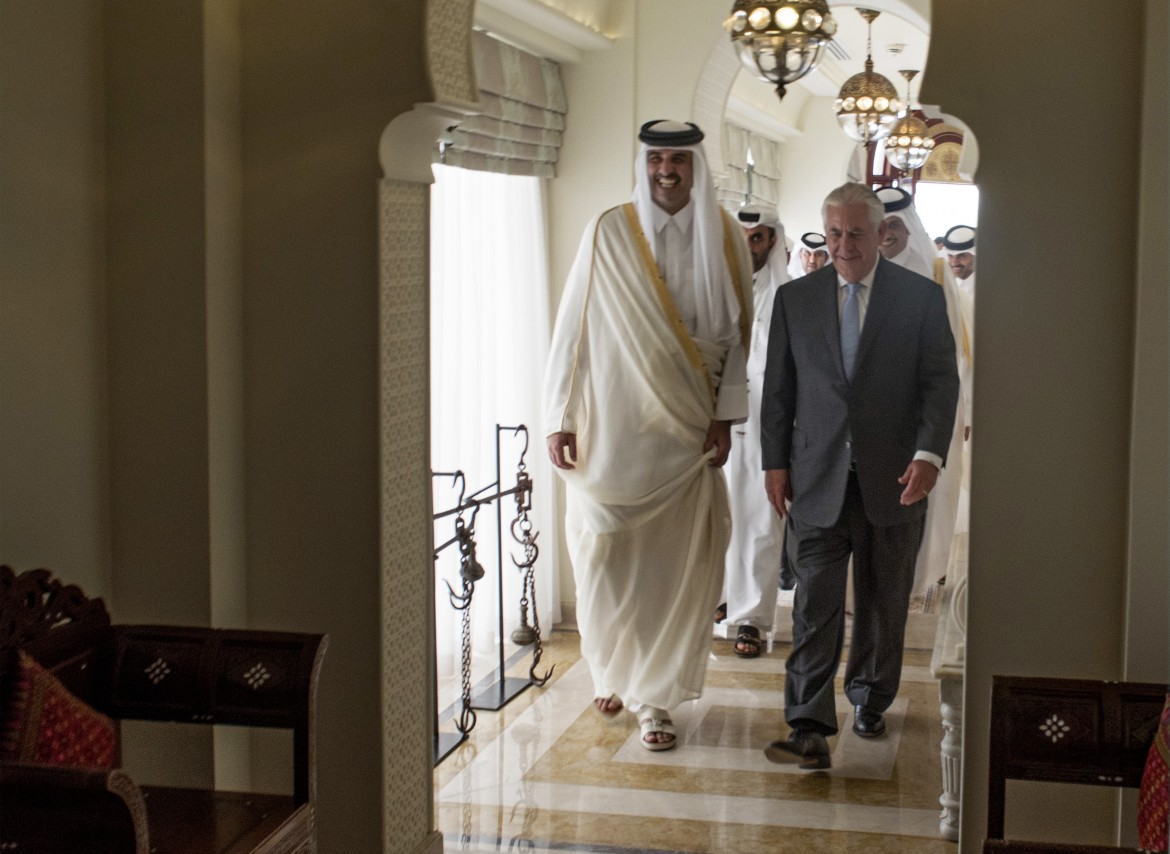Analysis
The Gulf crisis is an energy war, and the U.S. is playing both sides
U.S. Secretary of State Rex Tillerson signed an agreement with Qatar to receive $45 billion in foreign investment, but that policy is at odds with the Saudis and supports a government friendly to Iran.

It’s becoming increasingly clear that regional energy hegemony is the crux of a political crisis in the Gulf that pits Saudi Arabia and its allies against Qatar and Iran.
The oil war is so pressing that it dictates networks of schizophrenic alliances, in particular one: the Washington-Tehran-Doha triangulation with Qatar, arguing with the two enemies to ensure a smooth exit from isolation.
The direction of the new U.S. course was revealed on Tuesday by the U.S. Secretary of State Rex Tillerson. Tillerson flew to Doha and left 24 hours later with an agreement with the emirate in his pocket on the fight against terrorism and its financing: a memorandum of understanding that goes with the statements by the U.S. diplomat who described Qatar’s position as “reasonable.”
It was a disruptive symbolic act against both the U.S. administration itself (because it rejects Trump’s initial positions aligned with Saudi embargo of Qatar) and the Sunni front led by Riyadh (which was “disheartened” by the new role mediator Tillerson has carved for himself).
On Wednesday, the Secretary of State landed in Jeddah to meet with the foreign ministers of Saudi Arabia, Bahrain, UAE and Egypt. They have reiterated that the agreement just signed is still “insufficient” for them and “we cannot trust Qatar.”
The visit is intended to cool tempers and elegantly resolves a standoff that frustrates American plans in terms of geopolitics (war with Iran) and energy. Tillerson, the former chairman of Exxon — the oil giant that, along with Total and Shell, will support the Qatari plan to increase 30 percent of its production of liquid gas — knows how much Qatar has invested in the United States and how much it has promised. The latest plan is to invest $45 billion in U.S. sovereign funds by 2021, a golden windfall in terms of employment for an administration whose slogan is “America first.”
Breaking up with Doha is impossible, even though the emirate looks to the archenemy Tehran. In the last few weeks, the cordial relations between the two capitals with the Islamic Republic have come out in the open. Tehran immediately offered its airspace to Qatari flights, banned from the rest of the Gulf, and for the remittance of food blocked by the land embargo.
Saudi Arabia has created 13 terms for Qatar to escape its isolation. Although one of them is a request to close the Iranian embassy in Doha, the emirate continues on its own path. Foreign Minister Mohammed bin Abdulrahman al Thani reported to the press the common Qatari and Iranian interests to strengthen cooperation, starting from the development of the South Pars undersea gas field.
Incidentally, a few days ago, Total secured control of over 50 percent of Iran’s oil field for an investment of about $2.4 billion. And, according to Agenzia Nova, the same company on Wednesday formalized a 25-year partnership for the Al Shaheen submarine oil field.
Also on Wednesday, an agreement was announced between Iran and Oman to strengthen diplomatic relations, followed by the announcement of a meeting between Iranian President Rouhani and Oman’s Foreign Minister Bin Alawi, also a member of the last negotiation to end the Qatari crisis.
Riyadh will perhaps be forced to revise its own hegemonic plans in the region, if it will be deprived of the tireless U.S. support and the support of the world oil companies that go where the business is.
Originally published at https://ilmanifesto.it/nel-golfo-e-guerra-energetica-e-doha-fa-affari-con-usa-e-iran/ on 2017-07-13
